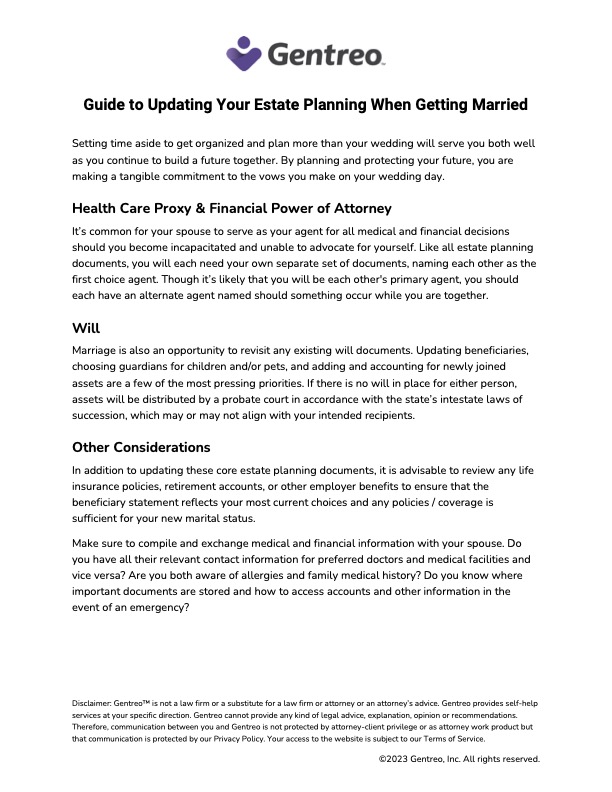The Ultimate Guide: Marriage & Engagement
Setting time aside to get organized and plan more than your wedding will serve you both well as you continue to build a future together. By planning and protecting your future, you are making a tangible commitment to the vows you make on your wedding day.
Get the FREE Guide!
Enter your email address to download our FREE guide that covers the things you need to do to protect yourself and your partner and prepare for the future of your relationship together.

Step 1: Health Care Proxy & Financial Power of Attorney
It’s common for your spouse to serve as your agent for all medical and financial decisions should you become incapacitated and unable to advocate for yourself. Like all estate planning documents, you will each need your own separate set of documents, naming each other as the first choice agent. Though it’s likely that you will be each other's primary agent, you should each have an alternate agent named should something occur while you are together.
Step 2: Will
Marriage is also an opportunity to revisit any existing will documents. Updating beneficiaries, choosing guardians for children and/or pets, and adding and accounting for newly joined assets are a few of the most pressing priorities. If there is no will in place for either person, assets will be distributed by a probate court in accordance with the state’s intestate laws of succession, which may or may not align with your intended recipients.
Other Considerations
In addition to updating these core estate planning documents, it is advisable to review any life insurance policies, retirement accounts, or other employer benefits to ensure that the beneficiary statement reflects your most current choices and any policies / coverage is sufficient for your new marital status.
Make sure to compile and exchange medical and financial information with your spouse. Do you have all their relevant contact information for preferred doctors and medical facilities and vice versa? Are you both aware of allergies and family medical history? Do you know where important documents are stored and how to access accounts and other information in the event of an emergency?
Checklist
- Do you and your spouse have both a medical and financial power of attorney naming at least one alternate agent?
- Do you each have a will? Does it reflect your current wishes for assets, guardianship, and beneficiaries?
- Have you exchanged medical and financial information including relevant family medical history, preferred doctors / medical facilities, and financial account access information?
- Have you each reviewed and updated any employer-offered benefits you receive?
- Do you both know where your important documents are stored and how to access them in an emergency?



